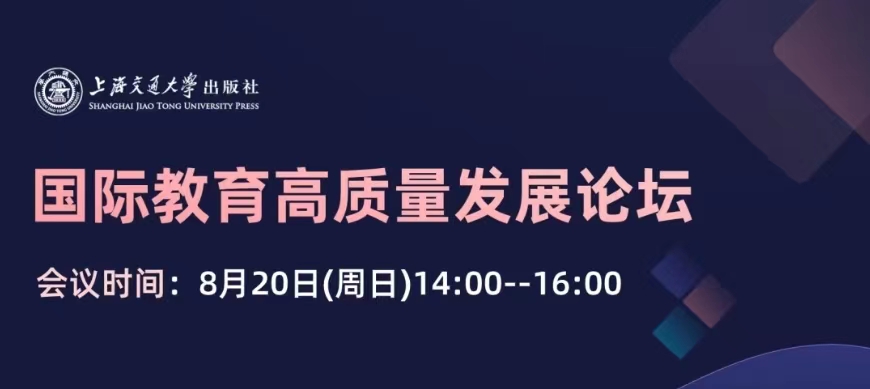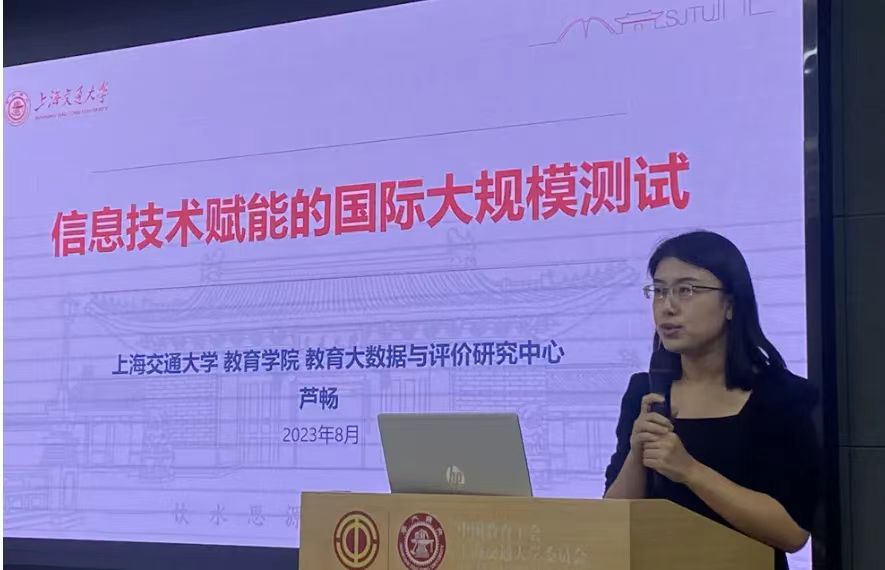On August 20, the "Forum on High Quality Development of International Education" was successfully held at Xuhui Campus of SJTU. A number of education administrators, front-line teacher representatives, education experts and scholars gathered at SJTU to discuss how to promote the development of international education for Chinese students and cultivate talents with international competence.
The event was synchronized online and offline, with more than sixty readers registering for the meeting and more than a thousand viewers watching online. The forum was hosted by CHEN Hui, Deputy Secretary of the Party Committee of Shanghai Experimental School, and FENG Gui, Vice President of SJTU Press, attended the opening ceremony and delivered a speech.

Dr. LU Chang, Deputy Director of the Research Center for Big Data and Evaluation in Education, School of Education, SJTU, gave an introduction to a variety of international large-scale language tests, describing how each assessment mode examines the dimensions of reading, mathematics, scientific thinking, etc. Computer-based assessment allows for the monitoring of test-takers’ behaviors. Previous research has made efforts to identify their behavioral patterns or investigate potentially influential factors. However, very few studies have examined the changes in behavioral patterns when completing a sequence of tasks. To fill this research gap, she, together witth other scholars, first identified two disengaged behaviors. Results of cluster analysis also show six types of engaged behaviors. Overall, the transition of behavior patterns of adults in the first 8 tasks was relatively stable, while it was more complex in the following 6 tasks. The results of multinomial regression analysis indicate that adults' behaviors in completing problem-solving in technology-rich environments are mostly due to task-related factors, and individual-related factors including age, education attainment, and gender, as well as learning abilities and the use of ICT skills. The findings from this study provide several implications for future vocational training in the context of ICT needs.

Reference: https://doi.org/10.1016/j.chb.2023.107852
Edited by CHEN Ruoxi




